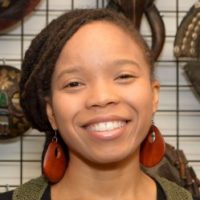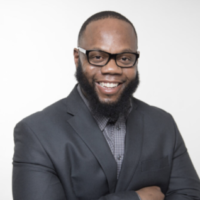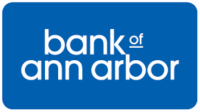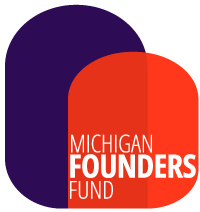2022 MFF Community Trailblazer Awardees: Advancing Racial Justice
Michigan is becoming more diverse but our state ranks among the worst for racial equity and inclusion, especially for Black residents. Since 2020, we have seen countless racial injustices and tragedies targeting Black and Brown communities across the nation and we felt a responsibility to use our network to take action and create more opportunities for underrepresented individuals. We can’t achieve our organization’s mission without addressing systemic racism, racial justice, and racial equity in Michigan. When Patrick Lyoya was murdered in Grand Rapids earlier this year, we knew our 2022 grantmaking efforts needed to advance racial justice.
We are eager to learn from, collaborate with, and support these Trailblazers and their efforts.
2022 Community Trailblazer Awardees
We’re honored to recognize and collaborate with three Michigan-based, Black Community Trailblazers who are advancing racial justice:

Dr. Shakara Tyler & Co-stewards

Leon El-Alamin

Courtney Smith
About the Awardees
Dr. Shakara Tyler, Detroit Black Farmer Land Fund
Co-stewards: Jerry Hebron, Tepfirah Rushdan, Erin Johnson, Danielle Daguio
How Shakara and her team are advancing racial justice through the Detroit Black Farmer Land Fund
On Juneteenth 2020, the Detroit Black Farmer Land Fund (DBFLF) was established as a coalition of 3 long-standing Detroit urban farming organizations with a collective mission to rebuild inter-generational land ownership for Black Farmers in Detroit: The Detroit Black Food Security Network, Oakland Avenue Urban Farm, and Keep Growing Detroit. These trailblazing organizations created DBFLF to address the historical racial land ownership disparity and provide needed economical and political support to Black land stewards in the city. DBFLF intends to rebuild intergenerational land ownership for Black farmers in Detroit to advance food sovereignty and the revitalization of Detroit’s agricultural landscape.
DBFLF is working toward a vision where Detroit has a Black urban farm landscape and has reduced the frequency of White-led, highly extractive and exploitative developments. As of October 2022, DBFLF has made 120 awards to Black farmers, totaling nearly $275,000, and has helped more than 30 Black growers become landowners. The team has also established a cooperative to increase marketing and production capacity to Black farmers in their network. In just one pilot growing season with a small group of farmers, the cooperative has sold more than $2,300 of local produce to major distributors. By 2024, DBFLF aims to help 60 more Black farmers become landowners, scale up technical assistance for farmers to purchase and develop eco-infrastructure projects, create a mentorship program, and implement a strategic planning process.
The award will help fund Black land purchases and infrastructure development projects in Detroit and help farmers connect to tech, new networks, and uplift the narratives of building intergenerational wealth as a critical strategy to racial equity.
How Shakara and her team are trailblazers, as shared by one of their supporters and collaborators
“The Detroit Black Farmer Land Fund is a trailblazer in multiple ways. This all-women team has emerged as leaders in the food sovereignty movement who have both an academic background and a solid grounding in community. They have expertly stewarded this groundbreaking land project that is garnering national attention because of its centering of racial and economic justice. They have consistently used their voices to disrupt capitalism, white supremacy and patriarchy. The work of food sovereignty and agriculture is often led by Black women, and the work that the Detroit Black Farmer Land Fund team is doing is transformative.” – Malik Yakini
Leon Al-Alamin, The MADE Institute
How Leon is advancing racial justice through The MADE Institute
Leon founded The MADE Institute in 2015 to provide comprehensive services to Flint citizens returning to the community following engagement with the criminal justice system. MADE is developing a network of transitional homes for returning citizens in north Flint, providing life skills instruction and coaching, offering job training and entrepreneurship programs, and addressing individualized education, health, and social service needs. MADE’s philosophy and programming are informed by Leon’s lived experience growing up in Flint, being impacted by the violence of north Flint neighborhoods, spending time in prison, and his continuing journey to overcome the personal, programmatic and systemic challenges to successful reentry.
Black residents are disproportionately impacted by engagement with the police and criminal justice system. MADE’s vision is to create a city where returning citizens and at-risk youth have equal access to employment, education, and full participation in the economic, political, and cultural life of the community. Each year, Leon and his team support more than 100 formerly incarcerated citizens returning to society with an incredible track record where not one MADE participant has returned to the criminal justice system in the last three years. Over the next 12 months, MADE is rehabbing two more transitional homes for returning citizens, launching a Financial Opportunity Center, and implementing life skills training, workforce development training, and wellness programs.
The award will advance Leon’s work by connecting MADE leadership and/or participants to mentors in the network who can help develop entrepreneurial business strategies, financially support housing needs for returning citizens, and have the opportunity to shine light on the criminal justice system to a new network.
How Leon is a trailblazer, as shared by one of his supporters and collaborators
“[Leon] created the idea for his organization, the MADE Institute, while still inside the justice system. Upon his release, he completely stood up the organization and has grown its reach and depth annually over the past 10 years working with hundreds of individuals. He is nimble, adding components to the model that reduce recidivism and increase effectiveness. He has also built relationships with public and private stakeholders from the ground up with little to no assistance. His hunger for positive community impact and success will never be satiated.” – Max Gritzuk
Courtney Smith, Detroit Phoenix Center
How Courtney is advancing racial justice through the Detroit Phoenix Center
Courtney founded The Detroit Phoenix Center (DPC) in 2017 to meet the critical, holistic and emergent needs of minority youth at risk or currently experiencing homelessness and housing insecurity. As someone who experienced housing insecurity firsthand, Courtney is trailblazing a new path for housing-insecure youth across Detroit. DPC administers a drop-in resource center, an emergency services fund, education, health, and leadership programming, and now, a youth podcast launching this fall. Since 2020, DPC has supported 1,200 people through its covid outreach programs, provided more than 200 days of emergency shelter, and facilitated more than 900 hours of educational and life skills programming.
The Detroit Youth Rising podcast provides housing-insecure young people with a platform to raise awareness of social issues they’re passionate about, while also giving minority youth the opportunity to gain valuable experience, expose youth to careers, and provide professional networking opportunities in the podcasting industry. The podcast not only raises awareness of social justice issues and educates listeners, but also advances racial equity by providing a platform for young people who have been impacted by systemic barriers and are often marginalized as a way to share their stories, drive systemic change, earn an income and be exposed to professional mentors. Youth involved in the creation of Detroit Youth Rising are compensated for their time and talent, providing real-world exposure and preparing them for future professional careers.
The award will advance Courtney’s work by providing financial support to the podcast program, having founders participate in the podcast as special guests, providing youth examples and direct pathways into Michigan’s tech workforce, and uplifting youth voices to a new network.
How Courtney is a trailblazer, as shared by one of her supporters and collaborators
“I’ve known Courtney for over 20 years, and I believe she has been an internally motivated disruptor even as a child under 10. She is a thinker, problem-solver, and collaborator. As she navigated adolescence and then as a young adult, she envisioned the pursuit of ways to positively impact youth/young adults with a history of foster care involvement and homelessness. She recognized some gaps within our community for young people growing up in Detroit. Her vision took shape and was realized when DPC was born. I genuinely believe that Courtney’s spirit lends itself to being business-minded and compassionate and she will continue to blaze trails with her voice and actions for many years to come.” – Celia Thomas


